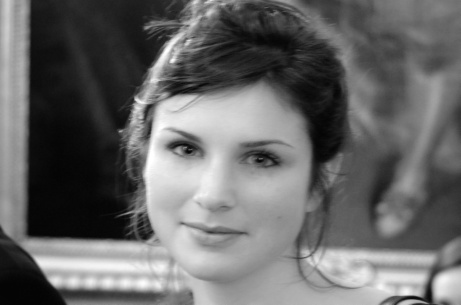
Erin Kara is starting a PhD on supermassive black holes.
Women mentors have played a big role in Erin Kara’s career in the male-dominated world of astrophysics and she is determined eventually to return the favour.
Erin [2011], whose PhD research at the University of Cambridge will centre on supermassive black holes, previously studied at Columbia’s all-female Barnard College and singles out one professor who she met early on in her university career as having had a significant influence on her future career.
She sat in on a class given by Reshmi Mukherjee, a female astronomy professor, early on in her time at Columbia. At the time she was majoring in physics and the class made a big impact. She got to know Professor Mukherjee who asked her to do research in astrophysics in her first summer. “I fell in love with astronomy from then,” she said.
“I totally admire Reshmi. She has done it all. She shows that as a woman you can have a family, a partner, friends, and still be top in your career. She was also particularly influential because she is a woman in astrophysics and showed me that there really can be a place for me in this field.”
Erin, who was born in Bethlehem, Pennsylvania, was dedicated to science from an early age, although she did violin, sang in the choir at school and took part in musicals at school. Her parents are both in medicine so it was expected she would follow suit. “Everyone was very surprised when I leaned towards the physical sciences, but when I took physics at high school I loved it. I loved that I could use formulae and maths to describe nature. It seemed to offer real explanations for how things worked, using fundamental forces,” she says.
She chose to go to Barnard College, although she was not set on going to a single sex college. “Once there, though, I developed a strong sense of feminism and an appreciation of an all female education. I’m very thankful for that now, especially being in a field where there are not many women,” she says.
She adds that she was one of only two women in her graduating class of around 40 physics majors. Being at Barnard College provided her with the supportive environment she needed at the start of a course that was so male-dominated and competitive. “The physical sciences are lagging behind other sciences in terms of the number of women students they attract. There need to be more female mentors,” she says.
Before she did the research project Erin says she had an idea that research was all about working on your own and publishing papers. “I thought it would be lonely, but I have never actually found that to be the case. It is such a social community. I was surprised by how much I fell in love with it.”
Erin did a number of summer internships during her course. One was at NASA’s Marshall Space Flight Centre in Alabama where she studied Gamma-ray Bursts. She was looking at data that no-one else had seen before and loved the element of discovery involved.
In her third and fourth years she worked on research projects with Reshmi, looking at super massive black holes. “They are the most extreme environments in the universe. They emit a lot of radiation, “ she says. She studied gamma ray radiation.
At Cambridge she has been completing an MPhil, working with the Cambridge X-ray Astronomy group and researching the broad iron K- and L- emission lines from Active Galaxies in the hope of better understanding the turbulent environment surrounding the central black hole.
She says: “In general, I am trying to understand how black holes work, and how they feed energy into the whole galaxy.”
For her PhD beginning in the autumn, she will continue this work. Her aim is to create a laboratory for testing gravity in the most extreme environments to see if it behaves in the way it is expected to. She was drawn to Cambridge by the reputation of the Institute of Astronomy and by its academics.
In addition to her studies, she is music director of a Gates a cappella group. She also sings in the Trinity College singers. At Columbia she was in a jazz a cappella group which gave public performances.
She hopes eventually to teach astrophysics and to be a mentor to other students. “I want to encourage others,” she says. “The Institute of Astronomy is very focused on public engagement. I think it is really important to communicate to the public that astrophysics is not just a cool subject they can hear about once in a while, but it can also be a fruitful career that encourages innovation, discovery and understanding.”












